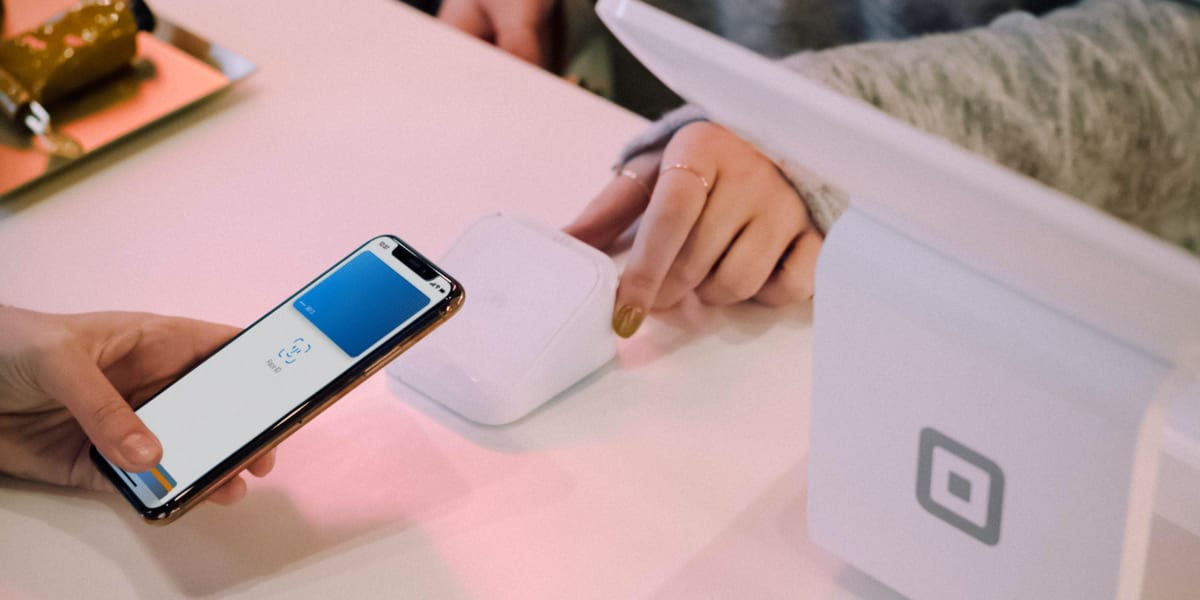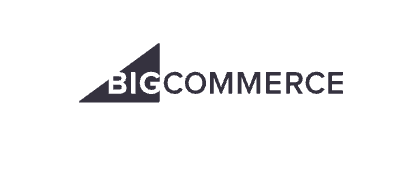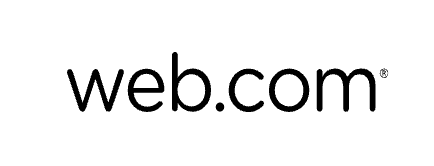How to Name a Business and Make the Best First Impression?

Coming up with a business name is an important and influential decision that should be taken seriously. Get creative and generate a list of potential business names. Use brainstorming techniques such as word association and free-writing to generate ideas. It is important to choose a name that is memorable and reflects the brand, as well as meets legal requirements. Let’s do it right now!
Some companies, such as Apple and Starbucks, actually started out by operating under a different name. It is hard to picture these businesses becoming as popular as they are now had they stuck with their original names.
In 1996, Larry Page and Sergey Brin named their first search engine BackRub – named for their ability to analyze backlinks. After settling on “Google,” they decided the name was unworkable. Netflix was founded as a DVD delivery service called Qwikster, but customers and investors disliked the name. In 2018, Weight Watchers rebranded itself as WW to disassociate itself from the negative connotations of crash dieting.
Business names may seem insignificant, but they carry a great deal of weight. A catchy business name should align with your company’s identity and goals. Changing the name of your business is expensive and lengthy: you must notify the IRS, obtain a new employer ID number (EIN) and replace licenses and permits. Ideally, the name of your company is permanent.
It takes five to seven impressions for people to remember a brand, but it only takes them seven minutes to form an impression of your brand.
Having a fun and memorable brand name that evokes the appropriate associations will help your brand stand out, and brand recognition have enormous implications for the bottom line. Here are a few tips for choosing a business name wisely.
Why Your Business Name is Important
Your company name sets the standard for what clients can expect from you. It also influences how readily existing and potential customers can recognize your brand.
Read also: The Best Clothing Brand Names Ideas That Perfect for You

It is the first thing customers see.
Your name describes the first impression that potential customers (and investors) have of your business. It will headline your advertisements and make up part of your domain. As such, it should be considered search engine friendly. Choosing a name too close to a competitor’s or that is hard to spell will harm your discoverability online.
Names like Zappos, Yahoo, and Google are catchy but meaningless, so they have higher cost-per-click rates to brand. However, interesting names tend to be more memorable.
It sums up everything about your business.
Your brand’s name should succinctly describe what items you sell and how your company operates. Think of words you could use to describe your products or services, the level of customer service you provide, and the atmosphere at your business locations (if you have them).
For example, Burrow is a furniture store that specializes in making custom modular furniture. The name has a dual meaning – it refers to the comfy nature of the furniture items, but you can also use them to create your own burrow.
It is your unique position in your industry.
A unique business name distinguishes you from competitors. The name must indicate trustworthiness, authority, and expertise in your field. Avoid choosing a name that might be limiting as your business expands.
For example, Apple dropped part of its original moniker (Apple Computers) to reflect its diversified product offerings as the business grew., while Amazon ditched its initial trade name “Cadabra” after it was misheard as a “cadaver.”
Read also: Marketing Company Name Ideas That Are Perfect to Choose
Types of Business Names
Entrepreneurs often choose between one of five approaches to naming their business. Your ideal approach depends on your brand identity, industry, and target audience.
Descriptive names.
Names that are descriptive identify the product and are perfect for branding a product. Although these names are practical and utilitarian, they are less likely to be misinterpreted.
When entering the competitive cryptocurrency market, it can be hard to convey storytelling and character with a descriptive name. However, business names with real-world words may be impossible to trademark.
Suggestive names.
Emotive brand names evoke specific emotions that occur when a customer uses your product or service. Suggestive names use connotations (the concept or feeling that a globe invokes) to convey the brand experience.
Good business names are perfect for companies that stand for more than just the products and services they supply. For example, suppose you run an independent bookstore and would like to build a community for Indie writers. Name your company something that sounds promising even if you’re still not there.
Names that are suggestively named are often easier to trademark than descriptive names because their novelty makes them stand out to potential customers.
Arbitrary names.
Many made-up brand names come from Latin, Greek, or other foreign root words that have been modified to represent the brand’s identity. They are entertaining, uniquely memorable names that do not directly relate to a company’s actual operations, but with sufficient repetition, customers will come to recognize and remember the name of a particular product.
Acronyms/initialisms.
Acronyms may be used to refer to companies that shorten extremely long names that would be difficult for customers to remember, such as BMW (for Berlin Motor Works). However, acronyms are devoid of meaning and emotion.
They are tough to remember even for audience members and are even tougher to brand. However, some of the world’s most famous brands are composed of acronyms incorporating an unrelated series of capital letters.
Companies regularly use acronyms for convenience – a merger or change that forces the company to change its name but it must preserve its heritage – but it isn’t recommended for an eCommerce business.
Names based on other languages.
Some companies use foreign words and piggyback on colloquial connotations.
For example, the name Uber comes from the German word meaning “above all the rest.” The company’s name emerged because Uber offered an alternative to flagging a taxi on the street by allowing users to call for rides with their mobile phones.
Yoshinoya is an international Japanese restaurant that is named after the owner’s hometown, Yoshino, which is famous for its luck and prosperity. The company’s name is derived from “Yoshino,” the city’s name in Japanese.
How to Name Your Business

Stick to a structured, disciplined method for coming up with potential names for your firm. Don’t rely on your gut feeling. Participate in market research, talk to potential customers, request feedback from family and friends and iterate until you reach the term that sticks.
Brainstorm business names.
Use brainstorming methods to come up with a comprehensive list of possible business names.
Think about your favorite household brands. For example, what comes to mind when you think about the brand name Kleenex? How about Sharpie? You will need to perform analysis and evaluation to come up with the perfect brand name.
You can do it yourself, but be sure to solicit the input of trusted friends, family, and mentors first.
Begin by brainstorming all pertinent words for your brand and industry. Don’t overthink it. The purpose of a garbage dump is to produce word vomit.
Set a timer (anywhere from 10 to 30 minutes) and don’t stop working writing during that time – from descriptive words to root words in other languages to words that describe your product or service. You don’t need to hold back.
Use the thesaurus to find synonyms and antonyms for the terms you generated from your word dump.
Expanding your selection gives you more choices from which to choose. Then, you can eliminate names that are no longer appropriate. However, don’t use just a few adjectives. Some of the most powerful-sounding company names are nouns.
Online business name generators such as NamesBee provide suggestions for the names of your business with the help of only a few keywords. These name generators instantly check for domain name availability so that you will not need to select a business name and then discover that you cannot register a “.com” domain under that name.
You can select your industry, services, and filters and customize these as you wish. The more keywords you enter, the more choices you’ll get. Repeat it several times. Keep refining until you find a suitable name for your services.
Make a list of the best business names.
It’s time to narrow your shortlist of possible names down to the final contenders. Remove any names that are too similar to an existing company’s name. The best-case scenario is that customers might confuse you with other businesses. The worst case would be that you could be sued for trademark infringement.
Select a business name that represents your brand identity and makes your target audience feel they have come to the right place for their needs.
If you’re a relaxed brand targeting a young audience, avoid using a traditional-sounding name that will make people think of you as a law firm. Consider the vernacular used in your industry when evaluating your brand name.
For instance, banks and other financial institutions use similar naming agreements for their corporate names.
Your business name is the heart of your brand identity. In particular, if your business has a unique or amusing history, the name will be more interesting to the public.
Some brands have their origins in mythology and others result from serendipity. LEGO is an acronym of the Danish phrase leg godt, which means ‘play well.’ The right name for your business leaves no doubt in the minds of consumers that you are the brand for them.
Anyone who reads a lengthy title consisting of made-up words without a connection to your products and services is likely to miss the point. The more often you brand yourself with a product or service-related name, the more money you will save.
Your advertisements will fail if you do not make your company’s name recognizable to your customers. This will make it less likely for word-of-mouth marketing to be effective, as well. Happy customers will not recommend your business to friends and family if they do not recognize your brand name.
In the digital era, businesses must devise company names with search engines in mind. If people search for your business online, should they find your company easily? Misspelling your name is less likely to appear in search engine listings, and people are more likely to overlook it entirely than spell it correctly.
Your company name will appear on your company logo, marketing collateral, social media accounts, and other branded materials. The best name should be visually appealing and sound pleasant when spoken aloud. Look at the shapes of the letters.
Follow naming rules for business structure.
While it’s good to be creative when naming a new corporation, don’t forget practical issues that pertain to your business plan and kind of operation. Each state has different regulations regarding business names. Be sure to consult with your local Chamber of Commerce.
Your business can only have a single “legal” name at any given time – the name you use when you file with the state to form an LLC or C-Corp – but you can have multiple assumed or DBA (“doing business as”) names.
For example, if your LLC’s legal name is “Harwick and Sons LLC),” you can file a DBA to do business as “Number One Plumbers.”
Many small business owners structure their businesses as limited liability companies (LLCs). This gives owners greater legal protection if their business has legal problems.
Read also,
A good business name can shape how a customer perceives a brand. Therefore, a business name also has practical implications: It can help protect your brand reputation over time. A 2022 study found that “fun” business names—or those that used creative linguistics like playful fonts, symbols, and unique spelling—protected against brand transgression. The researchers showed that “fun brand names create hedonic value for consumers by playing with language and creating brand names in inventive ways.”
While restrictions vary by state, there is a common theme.
You may not use words that imply the company is a government entity (eg: federal, Treasury, United States) or words such as “bank,” “trust,” or “insurance” unless you have the necessary permits to be operating as a government entity.
Corps are the most common type of company. They are suitable for companies with shareholders, directors, and officers working in association because they protect shareholders from being held personally liable for the company’s debts.
A corporation’s name typically must include words like ‘Corporation,’ ‘Incorporated,’ ‘Company,’ or ‘Limited’ or abbreviations like ‘Corp.,’ ‘Inc.,’ ‘Co.,’ or ‘Ltd.’
Instances of sole proprietorships and partnerships are much less regulated than corporations. However, you should still exercise caution.
Sole proprietors may use the founder’s surname or a fictitious name to operate a company. If you register your business with a fictitious name (by filing for a DBA), you should register your business with your local government secretary.
A DBA allows you to operate under a different business name than your own. Registering a business name will help you open a business bank account and obtain an employer identification number (EIN).
General partnerships have two or more owners. Registered partnership names should include the surnames of the founders. If you would like to operate under a different name as an independent contractor, apply for a DBA.
Check if the business name is available.
Before determining which company to name as a sponsor, make sure that another business hasn’t already claimed the name.
Ideally, your web address should match your company name. If the ‘.com’ domain name is not available, you may select .org or .net domains, although research shows that people typically trust .com domains more.
When prospective customers first search for your business, they may also be under the impression that you are under a .com domain name, and if they do not find you that way, they may give up looking.
Type in your company name idea into USPTO.gov to see if the name is available or semantically similar to the name of a business. USPTO.gov will tell you whether your name is trademarked or already being used by another company.
Check with local secretaries of the state to see if your company name appears in the Secretary of State’s records from the form of a well-known business entity.
You can request that the Secretary of State supply a preliminary decision on name availability, but you may have to wait for a final decision before you can use it. You may also Google “business entity name search” on the Secretary of State’s site.
Register Your Business Name

To register a business name, you must first register your business to make it a distinct legal entity. Most businesses need to register for a federal tax ID.
If you want to trademark your brand name, product, or service name, file with the United States Patent and Trademark Office once you’ve established your business. If your company is an LLC, C-corp, partnership, or nonprofit, you’ll need to register with the secretary of state’s office, a business bureau, or a business agency.
Guidelines for Business Name Ideas
Follow the above steps and you’ll discover the best brand name name. Before you begin the naming process, let’s review some important points to remember.
Understand your business.
It is essential to have a firm understanding of your company. This includes its mission, vision, goal, and audience. Your business name should represent this and should be your guiding principle for branding. Memorable words or literal meanings help explain your brand’s attributes.
Use descriptive words.
Adjectives are an excellent way to convey meaning. For example, if your company is famous for its premium quality, custom items, include words such as “custom” or “best” in your company’s name. If you’re known for fast services, words like “instant” or “rapid” highlight your distinctive value proposition.
Be literal.
Don’t make it difficult for customers to understand what your business provides. They should recognize your offerings by reading your name. This could mean including words about your product.
Use the word “furniture” or “home goods” in your company name if you sell furniture.
Choose a name style.
Choosing a name style keeps you consistent. Following common practices in your industry may improve the stickiness of your company name.
Avoid hard-to-spell names.
Names that are difficult to spell are difficult to remember and harder to find online. Your emails must also be difficult enough to find online to place the words in them. Be sure to avoid making future typographical errors on business cards, merchandise, and marketing materials.
Tell a story.
Certain names are evocative and can tell a story of your business’s ethos and origins in just a few words.
Get feedback on the name.
Fetch as many additional opinions as possible. As a businessman, you may be biased. Feedback is essential at every step of company development. Conduct market research and customer interviews to find out what consumers think of the name.
Don’t be too narrow.
Some major brands erroneously chose a name that is too specific, suggesting a sole product. In 2018, Dunkin’ Donuts dropped the ‘Donuts’ portion of its name to differentiate its drinks and breakfast items. Minimize a business name that is too small and won’t fulfill your needs as you expand.
Be careful about geographic names.
Geographical names might make you seem too local, which would not be good if you serve customers across the country or in other countries as well. Out-of-state clients might incorrectly assume that you will not serve them.
However, if your selling point is being able to read local dialects, feel free to mention it.
Choose a scalable name.
Choosing a business name is about the future and the present. Select something that will grow with your business, especially if you anticipate expanding your physical premises or catering to international markets in the future.
Do you know?
Apple dropped part of its original moniker (Apple Computers) to reflect its diversified product offerings as the business grew., while Amazon ditched its initial trade name “Cadabra” after it was misheard as a “cadaver.”
The Final Word
Creating an effective business name requires thoughtfulness and creativity. Consider the message you want to convey with your brand and how you want customers to feel when they hear your name. Think of words that are meaningful to your industry or product offering and combine them together in an interesting way. Make sure the name is unique enough that it stands out from competitors but still speaks to your target audience.
FAQs About How to Name a Business
Brand-name titles that consist of made-up words are gaining popularity. Many start-up names have 4-6 character lengths. Companies are more frequently using generic words that have nothing to do with the industry but can be easy to remember.
If your business is a partnership or a sole proprietorship, then your company name should include your name, or if you are using a DBA, the name under which you run the business. Other business structures (C-Corps and LLCs) are not required to have the owner’s name.
What should I name my business?
Choosing a name for your business is an important decision. It should reflect the values of your brand and be memorable to potential customers. When deciding on a name, consider what your business does and how it can be described in a few words. Aim for a catchy name that will stand out from the competition and accurately represent your brand. Make sure to research potential names to ensure they don’t infringe on another company’s trademark or copyright. Additionally, evaluate the potential names for clarity, memorability, and uniqueness.
Should you name your business after yourself?
Naming your business after yourself can be a great way to create a strong brand and find a .com domain name. It can also help people quickly identify who is behind the business, making it easier for customers to trust you. However, if you don’t want to be the face of your business or if your customers prefer a company name, then it may not be the best choice. Additionally, if you want your business to run without you in the future, then using your name is not recommended.
What makes a good business name?
A good business name is essential for any successful venture. It should be memorable, evoke a feeling, and speak to its target audience. A great business name should have rhythm or repetition, be abstract or quirky, and not be too long.






